Related Research Articles
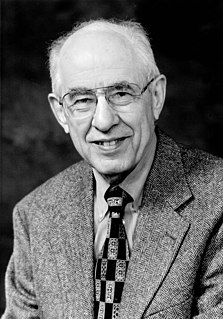
Hilary Whitehall Putnam was an American philosopher, mathematician, and computer scientist, and a major figure in analytic philosophy in the second half of the 20th century. He made significant contributions to philosophy of mind, philosophy of language, philosophy of mathematics, and philosophy of science. Outside philosophy, Putnam contributed to mathematics and computer science. Together with Martin Davis he developed the Davis–Putnam algorithm for the Boolean satisfiability problem and he helped demonstrate the unsolvability of Hilbert's tenth problem.
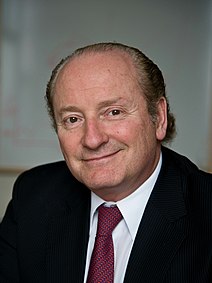
Robert Cox Merton is an American economist, Nobel Memorial Prize in Economic Sciences laureate, and professor at the MIT Sloan School of Management, known for his pioneering contributions to continuous-time finance, especially the first continuous-time option pricing model, the Black–Scholes–Merton model. In 1993 Merton co-founded hedge fund Long-Term Capital Management.

Behavioral economics studies the effects of psychological, cognitive, emotional, cultural and social factors on the decisions of individuals and institutions and how those decisions vary from those implied by classical economic theory.
Frank Plumpton Ramsey was a British philosopher, mathematician, and economist who made major contributions to all three fields before his death at the age of 26. He was a close friend of Ludwig Wittgenstein and, as an undergraduate, translated Wittgenstein's Tractatus Logico-Philosophicus into English. He was also influential in persuading Wittgenstein to return to philosophy and Cambridge. Like Wittgenstein, he was a member of the Cambridge Apostles, the secret intellectual society, from 1921.
Neuroeconomics is an interdisciplinary field that seeks to explain human decision making, the ability to process multiple alternatives and to follow through on a plan of action. It studies how economic behavior can shape our understanding of the brain, and how neuroscientific discoveries can guide models of economics.

David Isaac Laibson is a professor of economics at Harvard University, where he has taught since 1994. His research focuses on macroeconomics, intertemporal choice, behavioral economics, and neuroeconomics. In 2016, he became chairman of the Harvard economics department.
In economic policy and economics, dynamic inconsistency or time inconsistency is a situation in which a decision-maker's preferences change over time in such a way that a preference can become inconsistent at another point in time. This can be thought of as there being many different "selves" within decision makers, with each "self" representing the decision-maker at a different point in time; the inconsistency occurs when not all preferences are aligned.

Thomas John Sargent is an American economist and the W.R. Berkley Professor of Economics and Business at New York University. He specializes in the fields of macroeconomics, monetary economics, and time series econometrics. As of 2020, he ranks as the 29th most cited economist in the world. He was awarded the Nobel Memorial Prize in Economics in 2011 together with Christopher A. Sims for their "empirical research on cause and effect in the macroeconomy".

Jacob Marschak was an American economist.
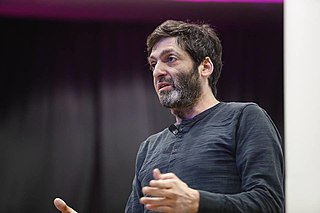
Dan Ariely is an Israeli-American professor and author. He serves as a James B. Duke Professor of psychology and behavioral economics at Duke University. Ariely is the founder of the research institution The Center for Advanced Hindsight, as well as the co-founder of several companies implementing insights from behavioral science. Ariely's TED talks have been viewed over 15 million times. Ariely is the author of the three New York Times best sellersPredictably Irrational, The Upside of Irrationality, and The Honest Truth about Dishonesty, as well as the books Dollars and Sense, Irrationally Yours – a collection of his The Wall Street Journal advice column "Ask Ariely"; and Payoff, a short TED book. Ariely appeared in several documentary films, including The Inventor: Out for Blood in Silicon Valley and produced and participated in (Dis)Honesty: The Truth About Lies.
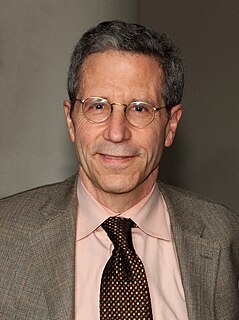
Eric Stark Maskin is an American economist and mathematician. He was jointly awarded the 2007 Nobel Memorial Prize in Economic Sciences with Leonid Hurwicz and Roger Myerson "for having laid the foundations of mechanism design theory". He is the Adams University Professor and Professor of Economics and Mathematics at Harvard University.
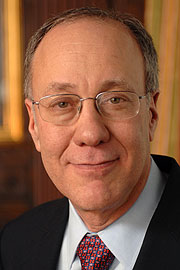
Roger Bruce Myerson is an American economist and professor at the University of Chicago. He holds the title of the David L. Pearson Distinguished Service Professor of Global Conflict Studies at The Pearson Institute for the Study and Resolution of Global Conflicts in the Harris School of Public Policy, the Griffin Department of Economics, and the college. Previously, he held the title The Glen A. Lloyd Distinguished Service Professor of Economics. In 2007, he was the winner of the Sveriges Riksbank Prize in Economic Sciences in Memory of Alfred Nobel with Leonid Hurwicz and Eric Maskin for "having laid the foundations of mechanism design theory." He was elected a Member of the American Philosophical Society in 2019.
Steven Lawrence Kleiman is an American mathematician.

Risk inclination (RI) is defined as a mental disposition toward an eventuality that has consequences. The risk inclination model (RIM) is composed of three constructs: confidence weighting, restricted context, and the risk inclination formula. Each of these constructs connects an outside observer with a respondent’s inner state of risk taking toward knowledge certainty.
Paul W. Glimcher is an American neuroeconomist, neuroscientist, psychologist, economist, scholar, and entrepreneur. He is one of the foremost researchers focused on the study of human behavior and decision-making, and is known for his central role in founding and developing the field of neuroeconomics which takes an interdisciplinary approach to understanding how humans make decisions. Glimcher also founded the Institute for the Study of Decision Making at New York University (NYU), which he currently directs.
Peter L. Bossaerts is a Belgian-American economist. He is considered one of the pioneers and leading researchers in neuroeconomics and experimental finance.
Anna Mikusheva is the Castle-Krob Career Development Associate Professor of Economics at Massachusetts Institute of Technology. She was the 2012 recipient of the Elaine Bennett Research Prize, a bi-annual prize that recognizes and celebrates research by a woman in the field of Economics, and was selected as a Sloan Research Fellow in 2013. She is a co-editor of the journal Econometric Theory.
Elchanan Mossel is a professor of mathematics at the Massachusetts Institute of Technology. His primary research fields are probability theory, combinatorics, and statistical inference.
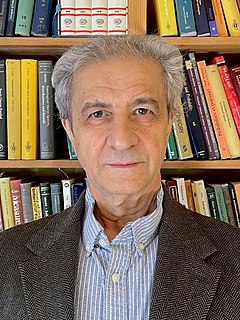
Aldo Rustichini is an Italian-born American economist, academic and researcher. He is a professor of economics at University of Minnesota, where is also associated with the Interdisciplinary Center for Cognitive Sciences.
References
- ↑ "Drazen Prelec distinguished Croatian expert for Neuroeconomics and professor at MIT, USA".
- 1 2 "Faculty & Research: Drazen Prelec". MIT Sloan School of Management. Retrieved 2015-08-03.
- ↑ "Drazen Prelec MIT Sloan". MIT Sloan School of Management. Retrieved 2022-01-22.
- ↑ Nichols, Michelle (June 4, 2004). "The crazy logic of a successful sale". Business Week . Archived from the original on September 26, 2008..
- ↑ "The Harvard Game in a Market Setting". Yale Center for the Study of American Politics. Retrieved 2022-01-22.
- ↑ Loewenstein, George; Prelec, Drazen (1 May 1992). "Anomalies in Intertemporal Choice: Evidence and an Interpretation*". The Quarterly Journal of Economics. 107 (2): 573–597. doi:10.2307/2118482. JSTOR 2118482.
- ↑ Prelec, Drazen (1998). "The Probability Weighting Function". Econometrica. 66 (3): 497–527. doi:10.2307/2998573. JSTOR 2998573.
- ↑ Mijović-Prelec, Danica; Prelec, Draz̆en (27 January 2010). "Self-deception as self-signalling: a model and experimental evidence". Philosophical Transactions of the Royal Society B: Biological Sciences. 365 (1538): 227–240. doi:10.1098/rstb.2009.0218. PMC 2827460 . PMID 20026461.
- ↑ Morin, Richard (February 17, 2002). "Don't leave home with it" . The Washington Post . p. B5.
- ↑ Rosato, Donna (June 17, 2008). "Life without plastic". CNN. Archived from the original on December 23, 2009.
- ↑ Harford, Tim (March 19, 2009). "Your Brain on Credit". Forbes .
- ↑ McKee, Maggie (October 14, 2004). "Mathematical "truth serum" promotes honesty". New Scientist .